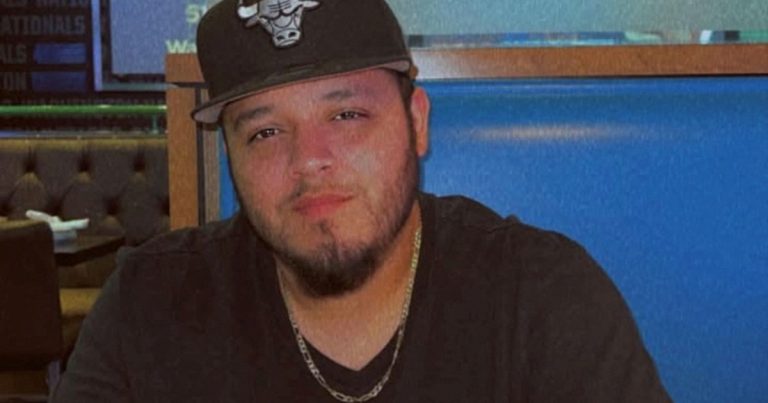A United States federal judge has called it “extremely troubling” that the administration of President Donald Trump failed to comply with her court order to provide details on the status of a Maryland resident illegally deported to El Salvador.
At a tense hearing on Friday, US District Judge Paula Xinis demanded that the administration identify the whereabouts of Kilmar Abrego Garcia, who was sent to El Salvador on March 15.
She also required daily updates on the administration’s efforts to secure his return.
Abrego Garcia, a Salvadoran migrant, had lived in Maryland under a court order protecting him from deportation since 2019. He had been in the US since 2011, after he said he fled gangs who were pursuing him for recruitment in his home country.
His wife and child are American citizens. But on March 12, he was stopped and detained by US Immigration and Customs Enforcement officers who questioned him about alleged gang affiliations.
He was deported on March 15 on one of three high-profile deportation flights to El Salvador that also included alleged Venezuelan gang members — in violation of the 2019 court order.
Abrego Garcia’s family sued to challenge the legality of his deportation, and on April 4, Xinis ordered the administration to “facilitate and effectuate” his return. The Trump administration challenged that order at the Supreme Court, which upheld Xinis’s order but said the term “effectuate” was unclear and may exceed the court’s authority.
The Supreme Court also ordered the Trump administration to take measures to facilitate Abrego Garcia’s release from custody in El Salvador and detail the steps it has taken — and will take — to return him to the US.
Xinis repeatedly pressed a government lawyer on Friday for answers about what it had done to get Abrego Garcia back.
“Where is he and under whose authority?” Xinis asked.
“I’m not asking for state secrets,” she added. “All I know is that he’s not here. The government was prohibited from sending him to El Salvador, and now I’m asking a very simple question: Where is he?”
“I’m not sure what to take from the fact that the Supreme Court has spoken quite clearly, and yet I can’t get an answer today about what you’ve done, if anything, in the past.”
‘A man’s life and safety is at risk’
Drew Ensign, a lawyer with the US Department of Justice, said the government would comply with the Supreme Court’s ruling. He repeated what the administration had said in court filings: that it would provide the required information by the end of Tuesday next week, once it had evaluated the Supreme Court ruling.
“We simply believe that the court’s deadlines are impracticable, but that is not to say that the government is not intending to comply with the Supreme Court’s order,” Ensign said.
Xinis ordered Ensign to provide her with daily updates, even if only to say that the government intends to comply with the Supreme Court’s order, but the administration believes her deadlines were unrealistic.
The Supreme Court’s ruling also said the lower court should clarify its order “with due regard for deference” to the executive branch of government.
The administration said in a court filing earlier on Friday that it was “unreasonable and impracticable” to say what its next steps are before they are properly agreed upon and vetted.
“Foreign affairs cannot operate on judicial timelines, in part because it involves sensitive country-specific considerations wholly inappropriate for judicial review,” the government’s filing said.
But Abrego Garcia’s lawyers questioned the Trump administration’s motives for the delay.
In their own filing on Friday, they alleged that “the government continues to delay, obfuscate, and flout court orders, while a man’s life and safety is at risk.”

Abrego Garcia’s wife, Jennifer Vasquez Sura, said the ordeal has been an “emotional rollercoaster” for their family and the entire community.
“I am anxiously waiting for Kilmar to be here in my arms and in our home, putting our children to bed, knowing this nightmare is almost at its end. I will continue fighting until my husband is home,” she said.
The case highlights the administration’s tensions with federal courts. Several have blocked Trump policies, and judges have expressed frustration with the administration’s efforts to avoid complying with court orders.
In Abrego Garcia’s case, the Trump administration has remained adamant that its deportation was warranted.
In a filing on April 7 to the Supreme Court, the Justice Department stated that, while Abrego Garcia was deported to El Salvador through “administrative error”, his actual removal from the United States “was not error”.
The error, department lawyers wrote, was in removing him specifically to El Salvador despite the deportation protection order.


